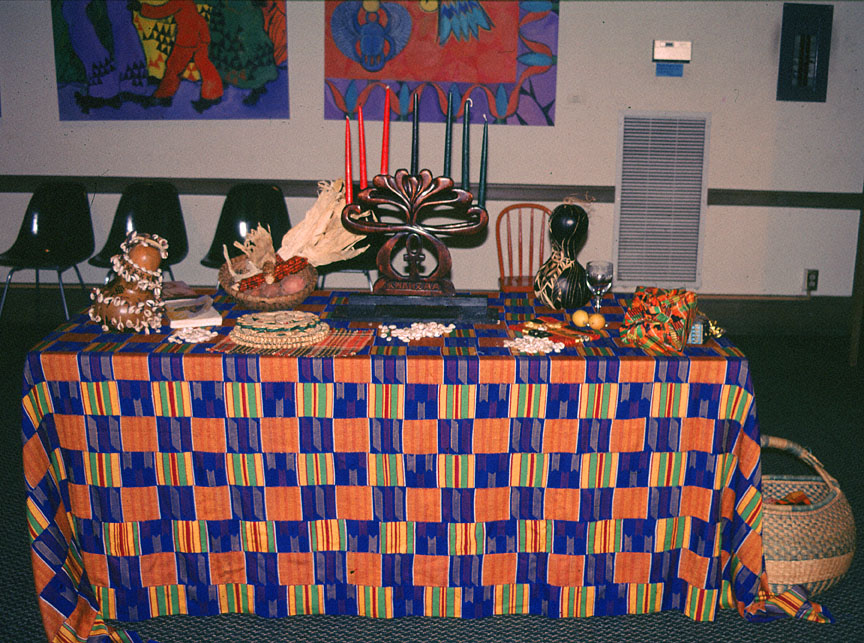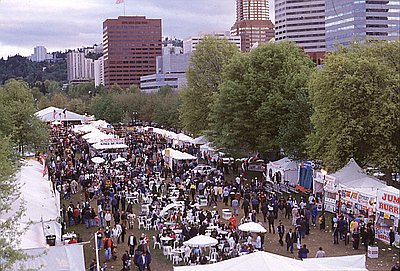- Catalog No. —
- S 13-1407
- Date —
- December 1998
- Era —
- 1981-Present (Recent Oregon History)
- Themes —
- Black History, Folklife, Race, Ethnicity, and Nationality
- Credits —
- Oregon Historical Society
- Regions —
- Portland Metropolitan
- Author —
- Laura Marcus
Kwanzaa
This photograph of a Kwanzaa table-setting exhibit was taken by Laura Marcus in December 1998. The table was on display―along with various symbols of Kwanzaa―at the North Portland Branch of the Multnomah County Library. The installation was the focus of several public events at the library during Kwanzaa.
The candelabrum is used to highlight and celebrate the African origins of the holiday’s participants. The seven candles in the candelabrum symbolize the seven nights and seven principles of Kwanzaa―unity, self-determination, collective work and responsibility, cooperative economics, purpose, creativity, and faith. The unity cup is used to toast and serve libations to ancestors. Corn, or maize, represents children and a collective hope for their future. Additionally, during Kwanzaa a gifts exchange signifies parents’ commitment to their children.
Kwanzaa is the celebration of African American heritage, pride, community, family, and culture. The holiday is observed from December 26 to January 1. Kwanzaa, derived from the Swahili phrase “matunda ya kwanza”—meaning “first fruits,”—was founded in 1966 by Dr. Maulana Karenga during the Civil Rights Movement. According to Dr. Maulana, the celebration is organized around five fundamental activities: the gathering of family, friends, and community; reverence for the creator and creation, which includes respect for the environment; commemoration of African history; recommitment to the highest cultural ideals of the African community―such as truth, justice, and respect for people and nature; celebration of the “good life,” which encompasses life, struggle, achievement, family, community, and culture.
Further Reading:
Karenga, Maulana. Kwanzaa: A Celebration of Family, Community, and Culture. Los Angeles, Calif., 1997.
Written by Robert Donnelly, Joshua Binus, © Oregon Historical Society, 2004, 2005.

